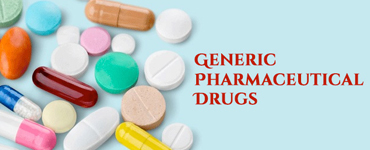Trending Blogs
Why Are Drug Patents Important Everything You Need to Know?
Before you ask for the importance of patent in the Pharmaceutical world, let us first learn about Patents. After a song is recorder, the song is approached by various music production companies who would like to rent the copyright of the song for marketing purpose and earn profit from it. And patent is almost similar, […]
Read More
The Clash Of Jurisdiction Of CCI And TRAI
Overlapping Jurisdiction The Competition Act, 2002 read with section 18 of the legislation delegates to the Competition Commission of India (the “CCI”) the duty of “promoting and sustaining competition” in the Indian economy. This implies that the CCI will have principal jurisdiction to regulate conditions of competition in the relevant market of India. Whereas, Section […]
Read More
Patents – An Important Tool for Pharmaceutical Industry
For suitable protection of medical inventions, patents are the perfect option. This would also safeguard medical discoveries that are research-based and it is done by most of the pharmaceutical companies. In return for the protection offered by the patent, it can disclose the research used in coming up with the medical innovation in the pharmaceutical […]
Read More
Copyright in the Digital World
These days, there is an increased use of smartphones, computers and tablets and multimedia has shown its great influence in our lives. In the digital world, there are several works used by us. Have you thought whose work are we using? Well, none of us have tried to find out the owner of the work […]
Read More
Need for Kashmiri Saffron to get the GI tag
The Kashmiri Saffron has been given geographical indication tag recently from Lieutenant Governor G C Murmu. The acquiring of GI tag is a step ahead in bringing the brand among the list of top ones. The tag has been given for the saffron grown in Kashmir. In this regard, it can be said that the […]
Read More
Why Is Protection of Geographical Indication or Designation of Origin Essential?
Having knowing regarding geographical indication along with designation of origin is something that is of great need these days. Geographical indication or GI indicates a symbol, name or sign relating to a product that corresponds to a definite geographical origin, product’s features, qualities that are due from the origin. To make a sign work as […]
Read More
Liability Of Internet Service Providers In Digital Environment
Isp Liability In India: Internet Service Providers (ISPs) can be liable for the content on the sites they host. They can be liable even if they were merely passively hosting the site, unless they take down the objectionable material when they receive notice of it. The Copyright Act and the Information Technology Act includes the […]
Read More
An Overview of Copyright
WIPO defines copyright as the right of creators to ownership of their creations and to make use for commercial or other purposes. Copyright today covers literary creations, printed material, computer programs, data, audiovisual media, dance, paintings and drawings, photographs, sculpture, architecture, ad material, technical drawings and others that are the outcome of intellectual effort. From […]
Read More
Protection Folklores India Intellectual Property Rights
India is a land of diversity when it comes to folk and ethnic culture with hundreds of ethnic, linguistic and religious groups with diverse origins and lifestyles that, over time, intermingled in part and remained untouched in parts over centuries. Perception about folklore differs in India, mainly associated with tribals and simple rural people, rather […]
Read More
Drug Patents and Generic Pharmaceutical Drugs
When a drug is manufactured and released to the market in the initial period, it is sold under a certain brand names and can only be availed from a pharmacy after being prescribed by the doctor. The patent of the drug is owned by a few brands who are the only eligible brands to manufacture […]
Read More
